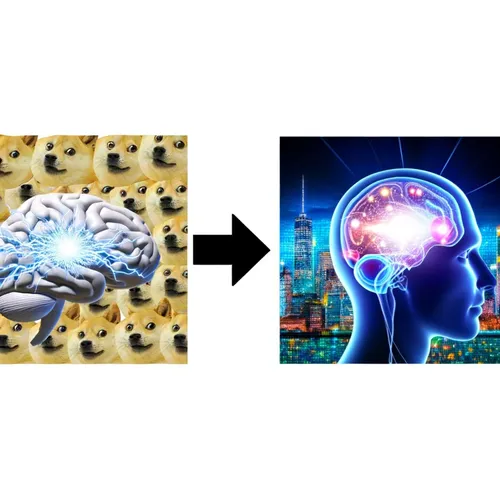Dogecoin Transforms Government Efficiency: Musk's AI Driven Reforms Spark Controversy and Institutional Crypto Adoption in 2025
- Author
- Quiet. Please
- Published
- Sat 06 Sep 2025
- Episode Link
- https://www.spreaker.com/episode/dogecoin-transforms-government-efficiency-musk-s-ai-driven-reforms-spark-controversy-and-institutional-crypto-adoption-in-2025--67657652
Government efficiency has long been a catchphrase, but in 2025, it has taken on distinctly meme-infused overtones thanks to the unlikely starring role of Dogecoin—the whimsical cryptocurrency once dismissed as a joke. The Department of Government Efficiency, abbreviated as DOGE, was established during the second Trump administration as a replacement for the Obama-era US Digital Service. Elon Musk, serving as a special government employee, envisioned DOGE—not just the department, but the coin—as a tool for turbocharging bureaucracy with artificial intelligence, automation, and even policy rewrites executed by AI systems. However, TechPolicy Press observes that Musk’s philosophy shifted quickly toward consolidation of power, with the deployment of controversial AI models and a lack of tangible labor or cost savings within the federal government. Per critics, what emerged was more dystopian spectacle: staff cuts, the rise of unaccountable bots, and the embedding of Musk’s Grok AI as a virtual regulator, raising concerns about bias and transparency.
Yet, on the financial side, Dogecoin itself has experienced a striking transformation. According to CoinSage, the past year saw Dogecoin gain new legitimacy through corporate alliances, like the $175 million CleanCore partnership, and a formal treasury governed by the House of Doge. Legal hurdles fell away after the SEC reclassified DOGE as a commodity, opening the door to ETFs and regulated products. The launch of a regulated Dogecoin ETP on the Swiss Exchange drew over $600 million from institutional investors. Social media and Elon Musk’s ongoing involvement—including integrating DOGE payments on X—continue to fuel price swings, showing that meme power and real-world structure now intertwine.
TechPoint Africa highlights how Musk’s alliance with Trump spurred a deregulatory environment favored by crypto proponents, translating meme energy into institutional adoption and ETF filings. But the impact has not been purely constructive. TechPolicy Press cautions listeners that the rush for efficiency has sidestepped transparency and ethical frameworks, with independent oversight weakened and public trust eroded. The lesson is clear: efficiency powered by DOGE thinking can upend traditional systems—sometimes for better, sometimes for spectacle. The future of government efficiency may depend less on the magic of memes than on accountable leadership and clear, ethical boundaries.
Thanks for tuning in and don’t forget to subscribe. This has been a quiet please production, for more check out quiet please dot ai.
For more http://www.quietplease.ai
Get the best deals https://amzn.to/3ODvOta
